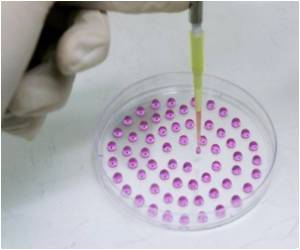Researchers have identified a group of human stem cells that has the ability to reverse disease in a rat model of Parkinson disease.

There are two types of stem cell considered in this context: embryonic stem (ES) cells, which are derived from early embryos; and induced pluripotent stem (iPS) cells, which are derived by reprogramming cells of the body such that they have the ability to generate any cell type. In turn, cells of the body can be reprogrammed to become iPS cells in one of two ways: the reprogramming proteins can be transferred directly into the cells (protein-based iPS cells) or viruses can be used to deliver to the cells the genetic information necessary for producing the reprogramming proteins (virus-based iPS cell).
Lee, Kim, and colleagues found several problems with cells derived from virus-based human iPS cells that precluded their use in the Parkinson disease model but found that nerve cells derived from protein-based human iPS cells reversed disease when transplanted into the brain of rats modeling Parkinson disease. They therefore conclude that protein-based human iPS cells could be used in the treatment of individuals with Parkinson disease.
Source-Eurekalert













